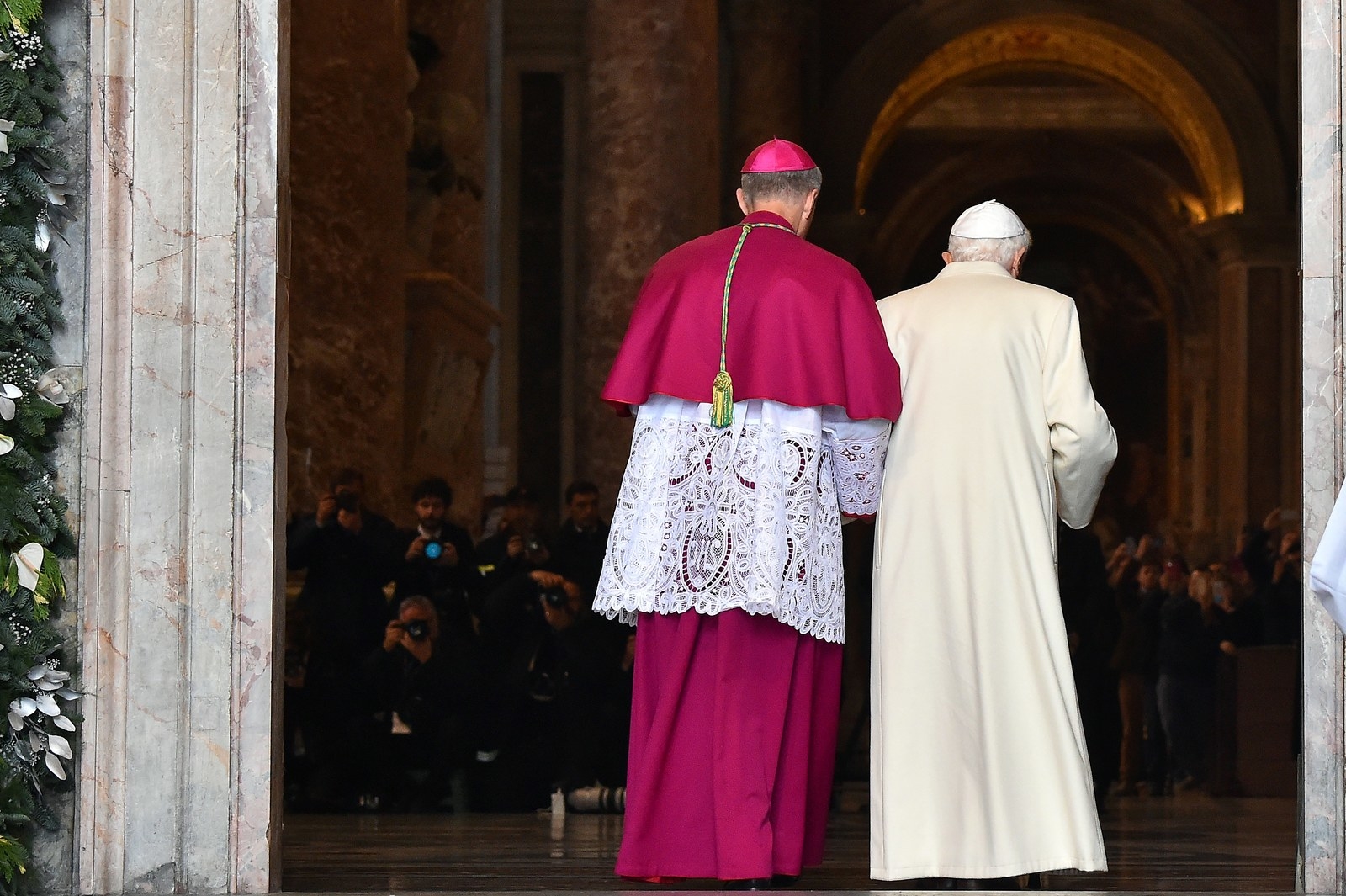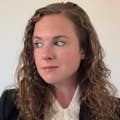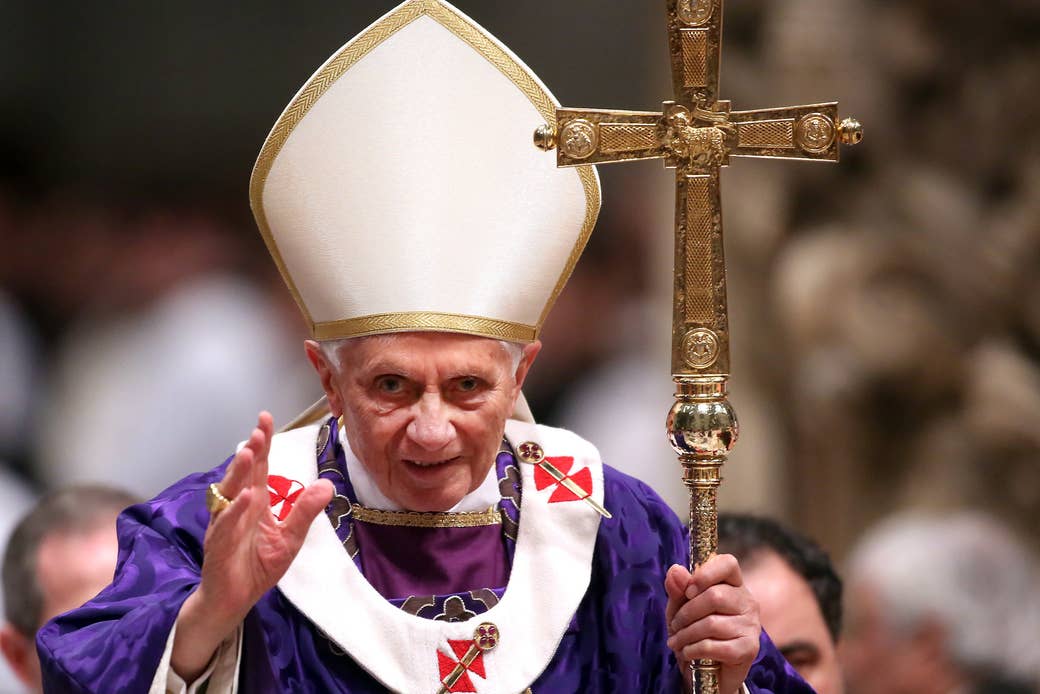
Pope Benedict XVI, the conservative German priest who served as the head of the Catholic Church for almost eight years before becoming the first pope in centuries to resign, has died. He was 95.
The Holy See Press Office announced that Benedict died at 9:34 a.m. on Dec. 31. On Jan. 2, the body of Benedict will be at St. Peter's Basilica so people can pay their respects. Vatican spokesperson Matteo Bruni said that Pope Francis will preside over Benedict's funeral Jan. 5 in St. Peter's Square.
Let us #PrayTogether for Pope Emeritus Benedict who is supporting the Church in silence. Let us ask the Lord to console him and to sustain him in this witness of love for the Church, until the end.
Leading the Vatican between the papacies of two enormously popular men, Benedict, a shy introvert, never managed to enjoy the same cultural impact or public favor as the charismatic popes John Paul II and Francis.
The writings and encyclicals of Benedict, regarded as one of the foremost theologians of his generation, as pontiff were popular even among his critics, and he will undoubtedly be remembered as a “teaching pope” who worked to make doctrine accessible to all.
But his tenure as pope was rocky. Most notably, he was heavily criticized for the Vatican’s handling of child sex abuse committed by priests. He also struggled to reconcile a fundamentalist interpretation of church teachings with an increasingly vocal subset of Catholics advocating for LGBTQ rights and a more nuanced stance on contraception and abortion rights.
The infamous “Vatileaks” scandal, wherein the pope’s own butler leaked correspondence showing a Holy See plagued by infighting and jealousy, also came to symbolize a church in disarray.
Benedict will be best remembered, though, for his shocking decision to resign from the papacy in 2013 because of his age, having concluded that he lacked the “strength of mind and body” necessary to continue in the role. Assuming the new title of pope emeritus, Benedict became the first pontiff since the 13th century to relinquish the papacy without external pressure.
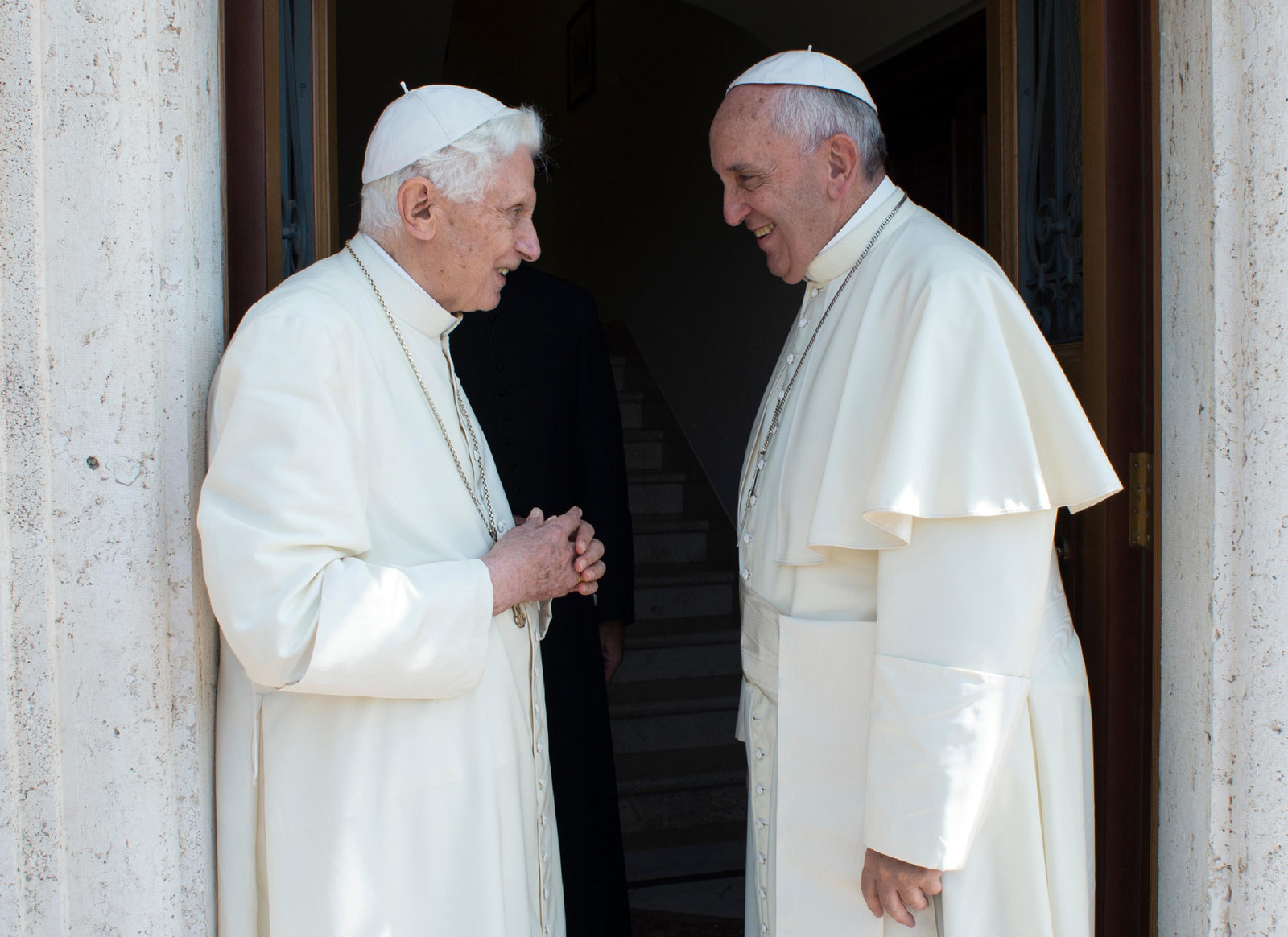
Born Joseph Aloisius Ratzinger in the Bavarian city of Marktl, Germany, on April 16, 1927, Benedict was the third and youngest child of Joseph and Maria Ratzinger. His parents met through a singles ad his father placed in a Catholic newspaper in July 1920, something that Benedict did not learn until an official visit to Germany as pope in 2006.
Benedict grew up in the village of Traunstein, near the Austrian border, where his father worked as a police officer. His adolescence was marked by the rise of Nazism; like all young Germans, he was required to join the Hitler Youth, but said he always looked for reasons to avoid meetings. Benedict later said that he remembered seeing his parish priests being beaten by Nazis before Mass.
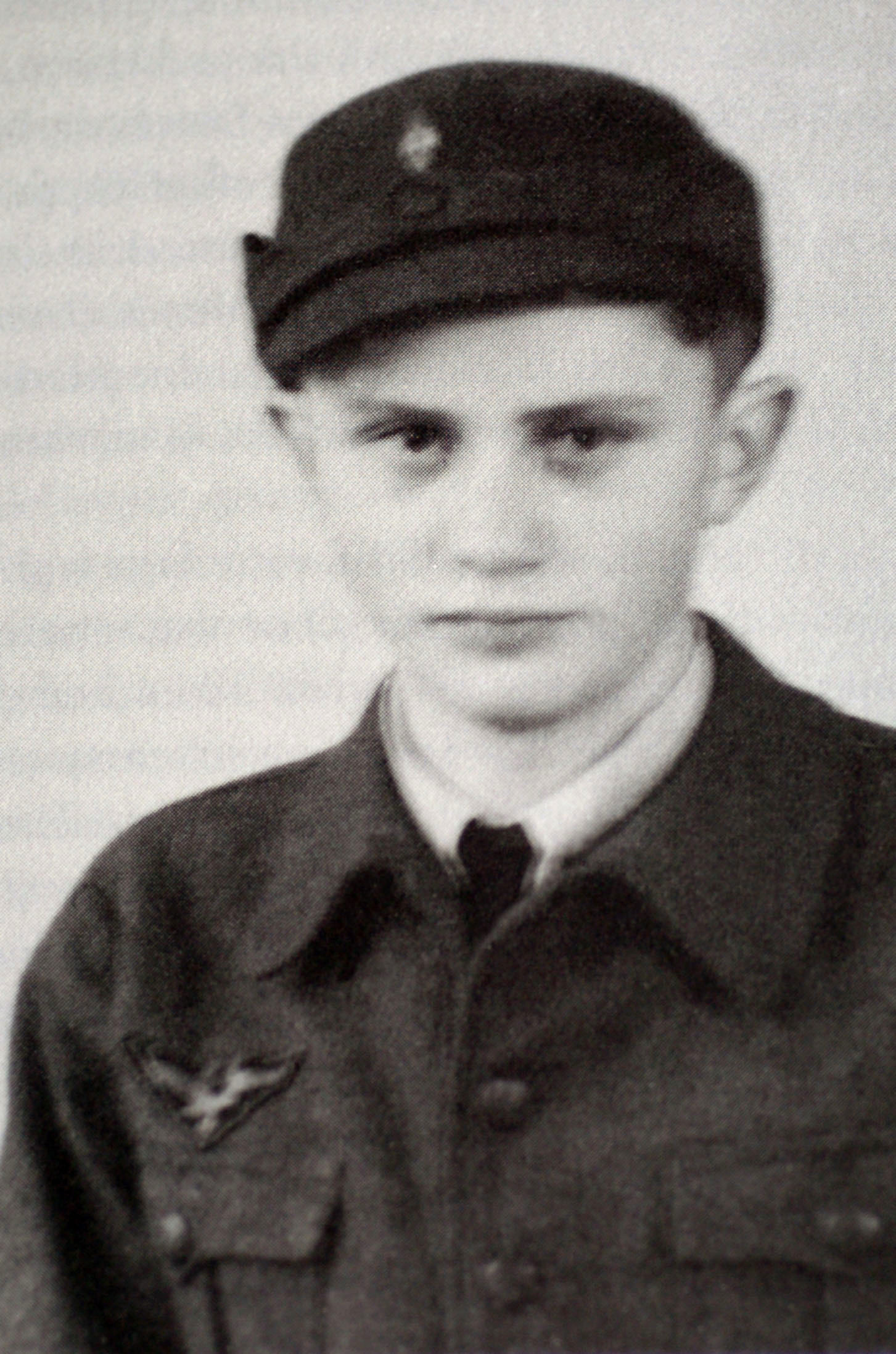
In September 1944, Benedict was conscripted into an auxiliary anti-aircraft corps outside of Munich. On April 16, 1945, his 18th birthday, he was forced into basic training but deserted the army a few weeks later. He was captured by Allied forces on his way home and taken to a POW camp outside Ulm, where he was held until June 19.
Following the end of World War II, Benedict completed his studies at his hometown seminary and set his eyes on higher education. From 1946 to 1951, he studied philosophy and theology at the Higher School of Philosophy and Theology of Freising and at the University of Munich.
Benedict and his brother, Georg, were ordained as priests June 29, 1951. Soon after he joined the priesthood, Benedict was appointed a lecturer in the archdiocesan seminary in Freising, a position he held while working on his doctoral dissertation. He received his doctorate in theology from the University of Munich in July 1953.
The next 20 years of Benedict’s life would be defined by his role as a teacher of the Catholic faith. During these years, Benedict’s scholarship attracted the notice of church leaders. In 1962, Cardinal Joseph Frings of Cologne asked him to serve as his adviser for the four sessions of the Second Vatican Council. For the next three years, until the council concluded in December 1965, he was highly influential behind the scenes of Vatican II, drafting documents, writing many of Frings’s speeches, and organizing the German coalition of bishops.
Benedict was named archbishop of Munich and Freising by Pope Paul VI on March 24, 1977. Three months later, he was elevated to the College of Cardinals. In August 1978, he was part of the conclave that elected John Paul I, who would serve as pope for 33 days before his death. Two months later, on Oct. 16, Benedict and the other members of the College of Cardinals elected John Paul II, who would go on to become one of the most well-known and beloved popes in the history of the Catholic Church.
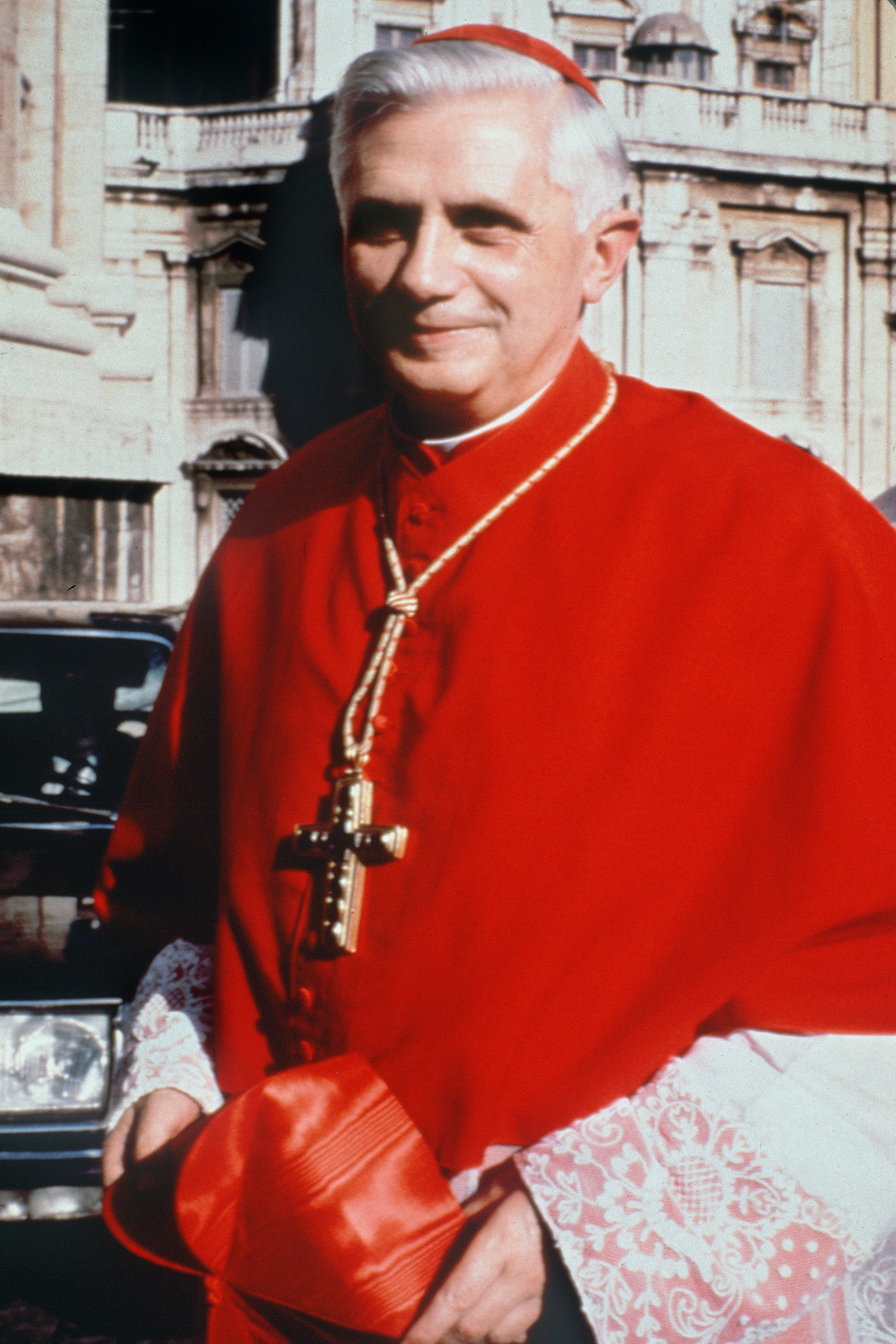
In 1981, Pope John Paul II appointed Benedict the prefect of the Congregation for the Doctrine of the Faith (CDF). The modern CDF is a descendant of the Holy Inquisition and is responsible for promoting and preserving church doctrine. One of the organization’s primary roles is to rule whether writings and actions are theologically and morally consistent with church doctrine.
As head of the CDF, Benedict earned the nickname “God’s Rottweiler” for the fervor in which he championed the conservative wing of the church. His tenure was characterized by a widespread stifling of theologians and scholars whose understanding of Catholicism was outside the boundaries of his own interpretation. In particular, he cracked down on “liberation theology,” a movement started in Latin America that calls for embracing the poor and actively engaging in social justice and economic reform. Benedict’s publications as head of the CDF doubled down on the church’s conservative stances on LGBTQ issues, religious pluralism, bioethical issues (particularly abortion and contraception), secularization, and many other “social” issues. Those who dared to argue were disciplined, dismissed, and even excommunicated.
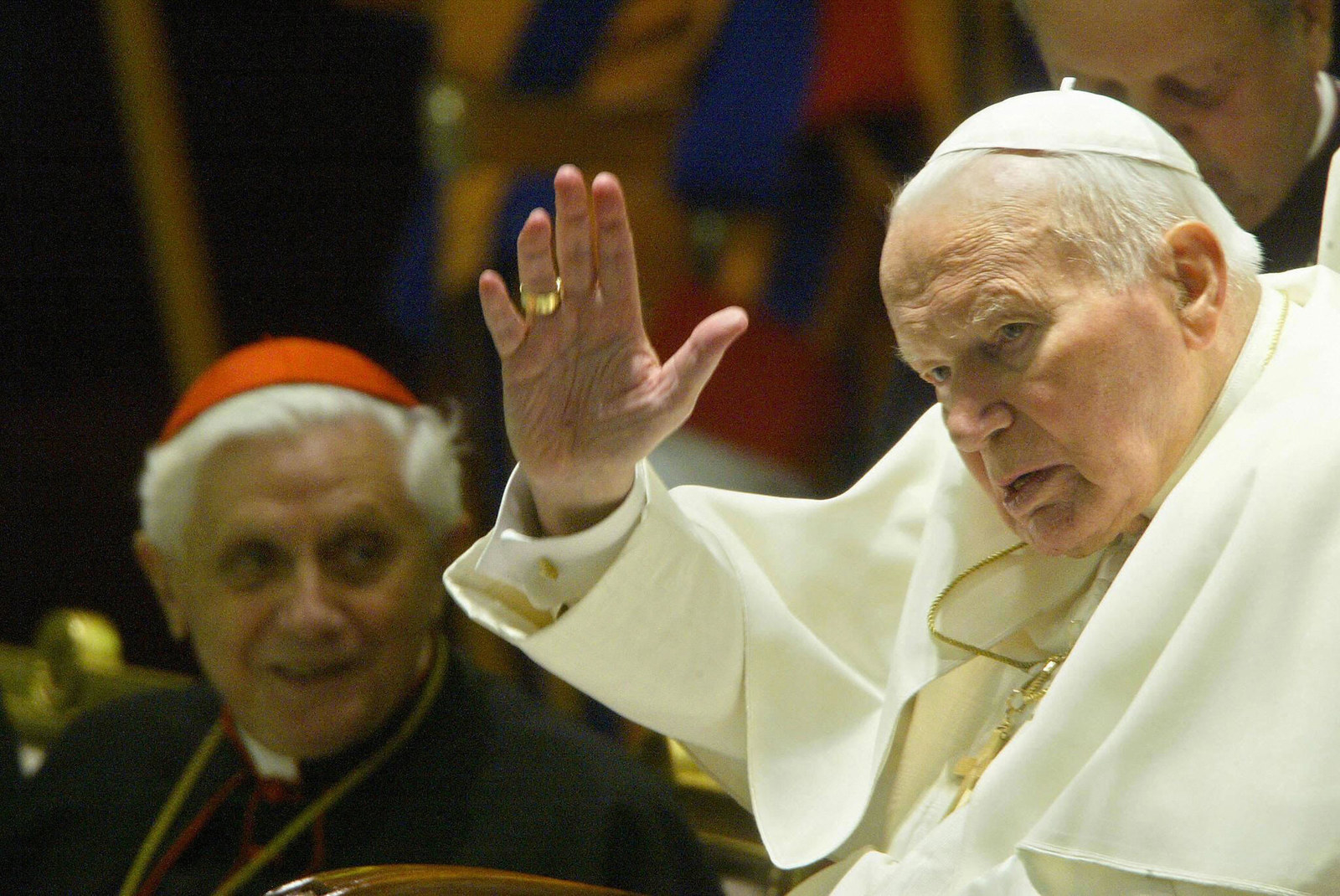
In 2002, he was named dean of the College of Cardinals, a position he held until he was elected pope. Following the death of Pope John Paul II on April 2, 2005, Benedict, who had been the former pope’s right-hand man, was responsible for calling the conclave to elect the new leader of the Catholic Church.
Because of his decadeslong close relationship with John Paul II, Benedict was the frontrunner heading into the conclave and was named the 265th supreme pontiff of the Roman Catholic Church on April 19, 2005, in one of the fastest conclaves in modern history. He became Pope Benedict XVI.
In his first address as pope, he referred to himself as “a simple and humble laborer in the vineyard of the Lord” following the great legacy of John Paul II.
"The new pope knows that his task is to make the light of Christ shine before men and women of world — not his own light, but that of Christ," Benedict said shortly after his election.
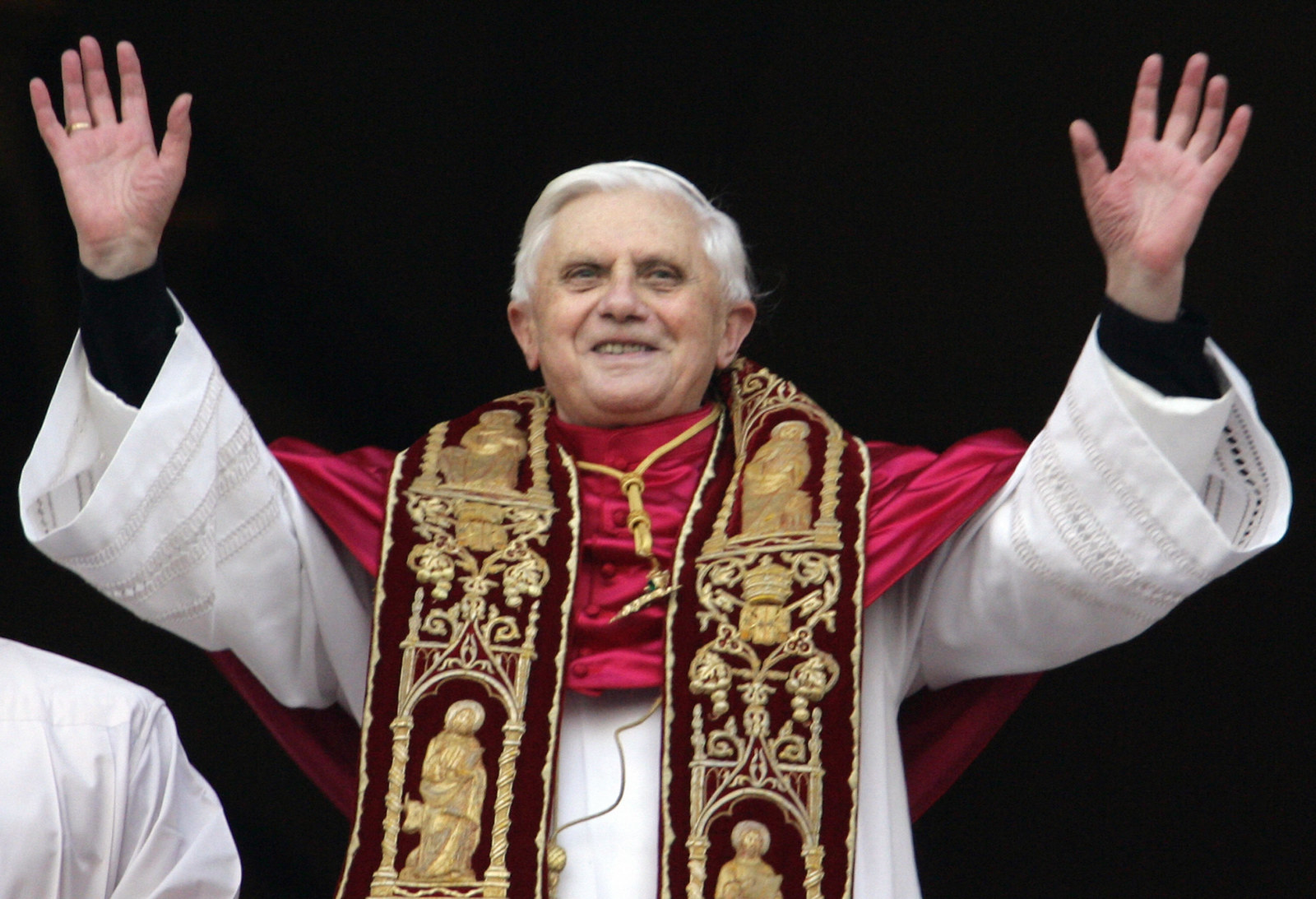
Arguably the most incendiary issue Benedict faced upon becoming pope was the ongoing fallout from the sexual abuse of children by Catholic priests, as well as accusations of a cover-up effort on the part of church administration.
When Benedict became pope in 2005, the Catholic Church was in the midst of a very public reckoning with its history of sex abuse — a crisis about which he was very well informed. In 2001, John Paul II empowered the CDF to centralize all investigations into abuse allegations, removing that power from local dioceses after it became clear that they often failed to take action against predator priests. As the head of the CDF, then-cardinal Ratzinger worked to establish new procedures for reporting and punishing clergy accused of sexual abuse.
As pope, Benedict repeatedly spoke out against the church’s legacy of child sex abuse, apologized to victims, and defrocked hundreds of priests who had been found guilty. However, for many, his actions fell short, in part because he failed to make public the Vatican’s investigations into abuse accusations — a lack of transparency that enabled dioceses to keep these accusations secret from parishioners and law enforcement authorities.
“In the Church’s entire history, no one knew more but did less to protect kids than Benedict,” the Survivors Network of Those Abused by Priests (SNAP) said in a statement in 2013, in response to the pope emeritus’s public claim that he did not engage in a ‘cover-up’ of clerical abuse. “As head of CDF, thousands of cases of predator priests crossed his desk. Did he choose to warn families or call police about even one of those dangerous clerics? No. That, by definition, is a cover up.”
Rumors of corruption and secret cabals in the Holy See also plagued Benedict’s tenure as pope, culminating in the “Vatileaks” scandal in 2012.
On Feb. 10, 2013, Benedict shocked the world by announcing his resignation from the papacy. “After having repeatedly examined my conscience before God, I have come to the certainty that my strengths, due to an advanced age, are no longer suited to an adequate exercise of the Petrine ministry,” he said in his official statement.
His decision to retire was later dramatized in the 2019 film The Two Popes, in which Benedict was portrayed by Anthony Hopkins, who was nominated for an Oscar for his performance.
As pope emeritus, Benedict made a conscious effort to stay out of the public eye. He apparently disliked being known by such a lofty title following his resignation and asked others to call him simply “Father Benedict.” He did, however, make public appearances at events of theological significance, such as the Canonization Mass of Pope John XIII and Pope John Paul II on April 27, 2014.
On Sept. 4, 2020, at the age of 93 years, four months, and 19 days, Benedict became the longest-living pope in history.
